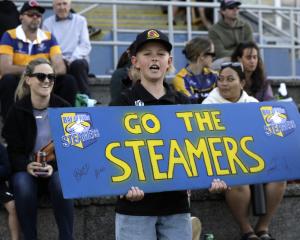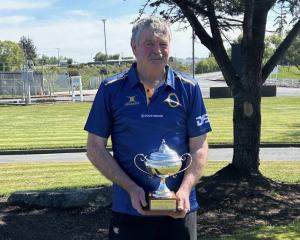Sky Television will be paying more to screen live rugby games under a new five-year deal from 2011, but will not provide any details.
Sky today confirmed it had reached agreement with the Sanzar rugby unions extending its broadcast arrangements for five years from 2011 to 2015.
The deal covers the Super 15, June test matches between the All Blacks and northern hemisphere teams, the Tri Nations, all inbound tours to this country, Australia and South Africa including the Lions tour to Australia in 2013 and the top South African and New Zealand domestic competitions.
Sky chief executive John Fellet told NZPA Sky would be paying more under the new agreement than under the present deal.
The new agreement was better for Sky, with the Super 15 to have more local derbies under a new structure as the New Zealand teams played each other more often, he said.
"We're always a lot better off Auckland versus Wellington or Christchurch, than Auckland versus Jo'burg ..."
For example, while viewers in Wellington might not watch Auckland play the Lions, when Auckland played Wellington Sky was getting two bites at the New Zealand market and so its ratings were higher.
"Effectively, I'm selling one house and moving into a bigger house, so I'm prepared to pay more money for that house," he said.
As well as incorporating a 15th side from 2011, the Super competition will be divided into three national conferences, with each side in a conference playing the other four sides in that conference at home and away.
Mr Fellet said he would also be happy to see Argentina join the Tri Nations competition, which is proposed for 2012 provided Argentina can gain release of its top players from French clubs.
He said the length of negotiations - which started last August - for the new agreement was not unusual, given there were six parties at the table including the pay television networks from the three countries and the three rugby unions.
And while Sky preferred to see a full house in the grandstands, because it added to the excitement, the number of spectators going to games was immaterial to the company, Mr Fellet said, pointing out that rugby made more money from the television coverage, than from spectators.
On the issue of ratings, he said they were typically a valuation argument for free-to-air television, but not as important to Sky to the same extent.
"We want everything to rate well, but some people get Sky just for CNN, then they may not watch CNN for six months until a war breaks out, then they watch it non stop for a weekend, or something like that. So we value these things differently than a free-to-air," Mr Fellet said.
When Sky asked non-subscribers what might attract them to Sky "rugby is one of the leading causes. So it would be in our interests in assigning higher value to rugby than any other sport, which we do."
Interest in sports waxed and waned.
"Last year during the NPC (national provincial championship) rugby was the hottest thing we've ever had. Then there have been times in the past when rugby's been down," he said.
"That's one of the reasons you do a five-year deal. There'll be one year that it's a fantastic value - you look like a genius. There'll be a year where you look like a complete moron for paying that much for the rugby, and then the other three years it's about right."
Mr Fellet also said timing of the games in this country should be much the same under the new deal as under the current deal.
Games at different times were worth different amounts. It was up to the rugby unions to look at the options and decide what was best for the game, he said.
Some fans have complained at the lack of day time games under the current agreement.
New Zealand Rugby Union chief executive Steve Tew said details of the agreements would be formally announced "in due course".







